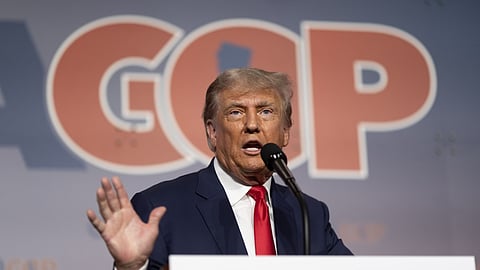Wall Street must stand up against Trump: Francis Wilkinson
In the looming shadow of a potential second Trump presidency, Francis Wilkinson warns of the alarming convergence between corporate America and the GOP's authoritarian trajectory. Despite damning assessments from former top officials, Trump's dominance in the Republican primary raises concerns for corporate leaders aligning with a party embracing thuggish politics. The GOP's shift towards authoritarianism, exemplified by legal attacks and violence, poses a critical challenge for business elites torn between courage and cowardice, with the spectre of eroding governance and unpredictable risks in a second Trump era.
Sign up for your early morning brew of the BizNews Insider to keep you up to speed with the content that matters. The newsletter will land in your inbox at 5:30am weekdays. Register here.
Wall Street Needs to Stand Up to Trump: Francis Wilkinson
By Francis Wilkinson
"A shadow looms over the world." That's what the Economist said in November, citing Donald Trump as the "biggest danger" the world faces in 2024.
Some calls are easy to make.
___STEADY_PAYWALL___

